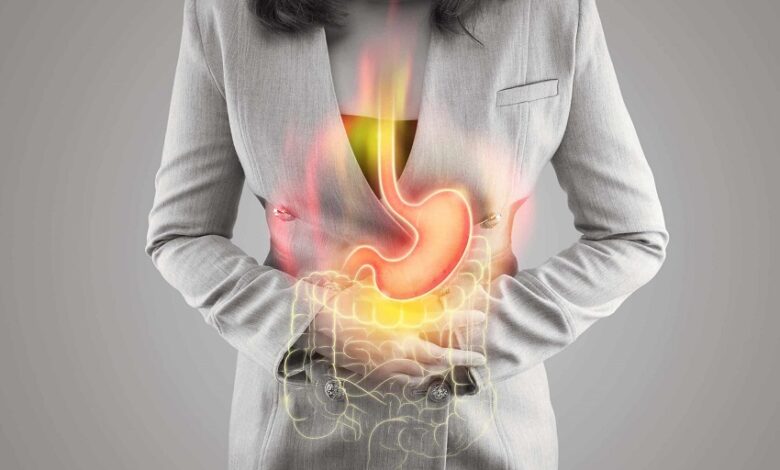How Do You Treat Stress Ulcers?

Stress ulcers, also known as peptic ulcers, are painful sores that develop on the lining of the stomach, small intestine, or esophagus. These ulcers can be caused by various factors, but stress plays a significant role in their development and exacerbation. In this article, we will explore effective ways to treat stress ulcers and alleviate their symptoms for a better quality of life. This article is provided by anxietyfightersguide.com
Understanding Stress Ulcers
To effectively treat stress ulcers, it’s essential to have a clear understanding of what they are and how they are triggered. Stress ulcers occur when the stomach’s protective lining is compromised, leading to the exposure of sensitive tissues to stomach acid. Chronic stress, certain medications, and lifestyle factors can contribute to their formation.
Identifying Symptoms
Recognizing the symptoms of stress ulcer is crucial for early detection and prompt treatment. Common symptoms include a burning sensation in the abdomen, bloating, nausea, vomiting, and dark, tarry stools. In severe cases, there may be blood in the vomit or stool, indicating a medical emergency.
Seeking Medical Attention
If you suspect you have a stress ulcer or experience any of the aforementioned symptoms, it’s vital to seek medical attention immediately. A healthcare professional can accurately diagnose the condition through physical examination, medical history, and possibly perform an endoscopy to visualize the ulcer.
Medication Options
Upon diagnosis, your doctor may prescribe medications to treat stress ulcers. Proton pump inhibitors (PPIs) and H2 receptor blockers are commonly used to reduce stomach acid production, allowing the ulcer to heal. Additionally, antacids may be recommended to neutralize stomach acid and provide temporary relief.
Lifestyle Modifications
In conjunction with medications, lifestyle changes can significantly improve the healing process and prevent ulcer recurrence. Avoiding spicy and acidic foods, quitting smoking, reducing alcohol consumption, and managing stress through relaxation techniques like yoga or meditation can be beneficial.
Dietary Recommendations
Certain foods can aggravate stress ulcers while others can promote healing. Incorporating a diet rich in fruits, vegetables, whole grains, lean proteins, and probiotics can aid in the healing process. It’s essential to avoid foods that are too hot, spicy, or acidic, as they may exacerbate ulcer symptoms.
The Role of Probiotics
Probiotics, commonly found in yogurt and supplements, can play a significant role in treating stress ulcers. These beneficial bacteria help maintain a healthy gut lining, potentially reducing inflammation and supporting the healing of ulcers.
Stress Management Techniques
Since stress is a major factor in the development of stress ulcers, learning effective stress management techniques is crucial. Engaging in regular exercise, spending time in nature, practicing mindfulness, and seeking counseling or therapy can all help reduce stress levels.
Avoiding Non-Steroidal Anti-Inflammatory Drugs (NSAIDs)
NSAIDs, such as aspirin and ibuprofen, can irritate the stomach lining and worsen stress ulcer symptoms. If possible, it’s best to avoid using NSAIDs for pain relief, especially if you have a history of ulcers.
The Healing Process
The healing process for stress ulcers may take time and patience. It’s essential to follow the prescribed treatment plan diligently and attend follow-up appointments with your healthcare provider to monitor progress.
When to See a Specialist
If your stress ulcers are persistent or recurring despite treatment, your doctor may refer you to a gastroenterologist for further evaluation and management.
The Importance of Self-Care
Practicing self-care is vital for managing stress and promoting overall well-being. Engage in activities that bring you joy, get enough restful sleep, and maintain a healthy work-life balance.
Preventive Measures
After successfully treating stress ulcers, it’s essential to take preventive measures to avoid their recurrence. Continuation of a healthy lifestyle, stress management, and avoiding trigger foods are key components of prevention.
Frequently Asked Questions
Q1: Can stress ulcers lead to complications?
A: Yes, if left untreated, stress ulcers can lead to serious complications such as bleeding, perforation, or obstruction in the digestive tract.
Q2: Can stress alone cause ulcers?
A: While stress can contribute to ulcer development, it is often a combination of factors, including bacterial infection and certain medications.
Q3: Can I use natural remedies to treat stress ulcers?
A: Some natural remedies, like licorice root or chamomile tea, may help soothe ulcer symptoms, but it’s essential to consult with a healthcare professional before using them.
Q4: Can I continue to take my regular medications while being treated for stress ulcers?
A: It’s crucial to inform your doctor about all the medications you are taking to ensure they do not interact negatively with the ulcer treatment.
Q5: Are stress ulcers common?
A: Yes, stress ulcers are relatively common, especially in individuals who lead high-stress lifestyles.
Conclusion
Treating stress ulcers requires a holistic approach that addresses both the physical and emotional aspects of the condition. By seeking medical attention, making lifestyle modifications, and effectively managing stress, individuals can successfully heal from stress ulcers and reduce the likelihood of recurrence. Remember, a healthy and balanced lifestyle is key to overall well-being and ulcer prevention.




